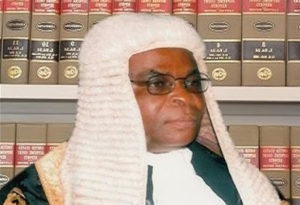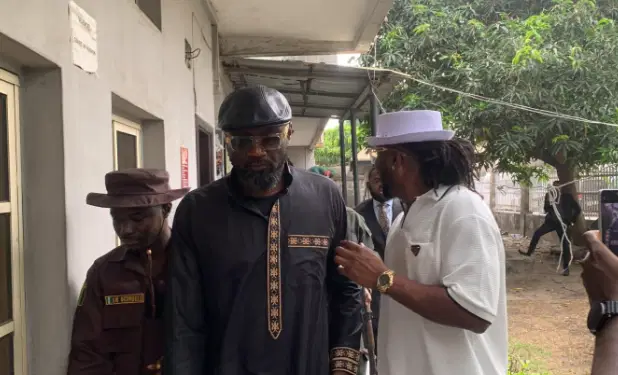
Appointment of Justice Walter Onnoghen as the Chief Justice of Nigeria has been confirmed on Wednesday by the Senate, making him the first person from the southern part of the country to occupy the office in the last 30 years.
Onnoghen is from Cross River State.
The last CJN from the South was Justice Ayo Irikefe, who occupied the office in 1987.
Onnoghen was screened by Committee of the Whole of the Senate.
The Acting President, Prof. Yemi Osinbajo, had written to the Senate, asking for legislative approval for the appointment of the new CJN.
In the letter dated February 7, 2017, with reference number SH/AG. qPRESIDENT/SEN/02/0, Osinbajo sought legislative confirmation for the appointment of Justice Walter Onnoghen of the Supreme Court as the CJN.
The letter read, “Following the recommendation of the National Judicial Council, I hereby notify you of the appointment of the Honourable Justice Walter Samuel Nkanu Onnoghen (CFR) as the Chief Justice of Nigeria.
“The Senate President is requested to kindly present the said appointment of the Honourable Justice Onnoghen for confirmation by the Senate of the Federal Republic of Nigeria pursuant to Section 231(1) of the Constitution of the Federal Republic of Nigeria.”
Based on the recommendation by the National Judicial Council on October 13, 2016, President Muhammadu Buhari had inaugurated Onnoghen, being the most senior Justice of the Supreme Court, as the acting CJN on November 10, 2016.
After the recommendation by the NJC, the President was expected, by constitutional provisions, to forward the appointment to the Senate for confirmation.
After Senate’s confirmation, the President is expected to swear in Onnoghen as the substantive CJN.
The first three-month tenure of Justice Onnoghen in acting capacity had expired on February 10, 2017, three days after Osinbajo transmitted his appointment to the Senate for confirmation.
At the screening, which lasted over one hour, Onnoghen addressed several issues raised by the lawmakers about Nigeria’s judiciary.
Leading the debate, Deputy President of the Senate, Senator Ike Ekweremadu, raised the issue of the time frame within which political matters were dealt with by the courts.
He said, “My lord, I am sure you are aware that prior to 2010, election matters took four to five years to conclude; sometimes beyond the lifespan of the tenure of the incumbent. But after, we amended the constitution, giving a time frame to deal with that.”
In his submission, the Chairman, Senate Committee on Judiciary, Human Rights and Legal Matters, Senator David Umaru, recalled some major cases Onnoghen presided upon, alluding to the fact that judgments delivered by the CJN might have led to the delay in his nomination and appointment.
He said, “In the case of (Muhammadu) Buhari against the Independent National Electoral Commission and others, 2008, AC/51/2008, in which you delivered a dissenting judgment alongside your brothers (judges), wherein you nullified the 2007 election on the grounds of substantial non-compliance with the Electoral Act. You equally handed down the profound decision in (Rotimi) Amaechi Vs INEC reported in 2008 by Nigerian Weekly Law Report, Pages 10 to 80.
“Equally, in the case of (Bukola) Saraki against the Federal Republic of Nigeria delivered on February 5, 2016, you delivered the lead judgment there. That scenario, put against the recent arrest of some judicial officers for alleged involvement in corrupt practice, and following the delay in your nomination by the executive, there is a general feeling that the judiciary under your watch, if eventually your nomination passes through the distinguished Senate, may not exhibit the exceptional and uncommon courage, which you have exhibited in those cases.”
Onnoghen, in his response, said his appointment was subject to confirmation by the Senate as the nomination had already been done by the National Judicial Council.
He also said, “The fear of me not exhibiting the uncommon courage that had earlier been exhibited; I assure you that I remain whom I have been on the bench right from the beginning and I intend to end that way by the special grace of God.”





